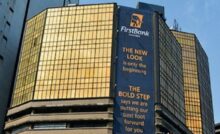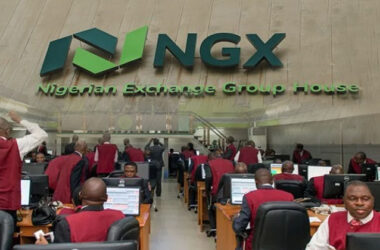CEO of Sonora Capital & Investment Limited, DR. Kunle Alonge, has shared his insights on the federal government’s plan to issue dollar bonds, aimed at enhancing Nigeria’s purchasing power and attracting diaspora investment, pointing out both the advantages and potential drawbacks.
According to Alonge in an interview with ARISE NEWS on Wednesday, he said, the purpose of issuing bonds is to mobilise idle funds, such as those in domiciliary accounts, and channel them into productive sectors where they can be utilised effectively.
“The essence of raising the bond is to move money from a static position, like funds in domiciliary accounts, to the active sector,” Alonge explained.
While he praised the initiative, he also cautioned about debt servicing costs, stating, “We need to worry about debt servicing costs, which could become a burden.”
Alonge believed the naira’s value should be between N1000 to N1200, achievable by maintaining supply in the market.
“I believe the value of the Nigerian naira should be between N1000 to N1200, but this requires us to maintain supply in the market,”he said.
He expressed doubts about the Central Bank of Nigeria’s recent intervention, stating, “The $123 million intervention may not be enough to move the needle.” However, he suggested that steady supply could help the naira find its value.
“While the federal government and Central Bank of Nigeria intervened with $123 million on Monday, I doubt it’s enough to make a significant impact.
“To stabilise the naira’s value, we need to sustain supply. Until then, it will remain unbalanced.
“To address our economic challenges, we must focus on low-hanging fruits like agriculture, which is critical due to food crises and high inflation rates of 34% and 40%.”
Agriculture, he noted, is a low-hanging fruit that could address food crises and inflation, which currently stands at 34%. “There should be more focus on the agricultural sector,” he stressed.
“We have some low-hanging fruit that deserves priority attention which is agriculture,which is due to the prevailing food crises and high inflation rates of 34% and 40%. This makes a strong case for increased focus on the agricultural sector,”he noted.
Regarding the impact of FX on his company, Alonge revealed that Sonora Capital & Investment Limited, a financial advisory firm, doesn’t take positions in dollars or forex. However, high rates and reduced commerce volumes affect their business.
He warned about the risks of currency pair trading, advising caution and thorough understanding of the fundamentals before investing.
“When it comes to currency pairs, I advise people to exercise caution and thoroughly understand the risks involved.
“Trading currency pairs is akin to betting, and it’s essential to be aware of the potential impact on your investments.
“Don’t rush in without understanding the fundamentals of the countries whose currencies you’re trading.
“It’s not as simple as it’s often made out to be – it’s a high-risk venture. So, take a step back, do your research, and think twice before diving in,”Alonge said.
He said 2024 volatility has been disastrous for FX-dependent businesses, making planning ahead challenging.
“This year has been devastating for businesses reliant on foreign exchange (FX), particularly exporters and importers.
“The volatility has been extreme, with the exchange rate fluctuating from 1900 in February to 1050 in April and now back to 1600 plus or minus.
“This level of unpredictability makes it impossible for businesses to plan ahead, regardless of their position.
“Exporters prefer a high exchange rate, while importers prefer a low one, but both need stability to plan effectively.
“Instead, importers are forced to hold onto dollar assets longer than necessary, while exporters hope for continued appreciation. This volatility makes it challenging for businesses to navigate the market, “he said.
The top three cost metrics for Nigerian firms, according to Alonge, are FX, wages, and electricity, which are fixed costs that need to be managed effectively.
“The top three cost metrics for Nigerian firms are: Foreign Exchange (FX), wages, and electricity.
“These costs are fixed and recurring, and businesses need to find ways to manage and absorb them month in month out,” Alonge said.
Overall, Alonge urged a balanced approach to Nigeria’s economic challenges, emphasising the need for sustainable solutions and careful planning.
Source: AriseNews









